UNIQUE AND STUNNING WILDFLOWERS
Many people do not realise the unique and diverse range of wildflowers that bloom in the Kimberley all year round. From the delicate Indigofera linifolia to the striking lilac flowers of the Mulla Mulla.
The Kimberley offers a treasure trove of photographic opportunities waiting to be explored, its diverse natural wonders providing endless creative possibilities.
If you would like to see more photos of wildflowers, please visit my blog Kimberley Wildflowers.
INDIGOFERA ERECTA

CANAVALIA ROSEA
The seeds and immature pods from Canavalia Rosea are used as food.
The beans are roasted or boiled before consumption and can be added to coffee.
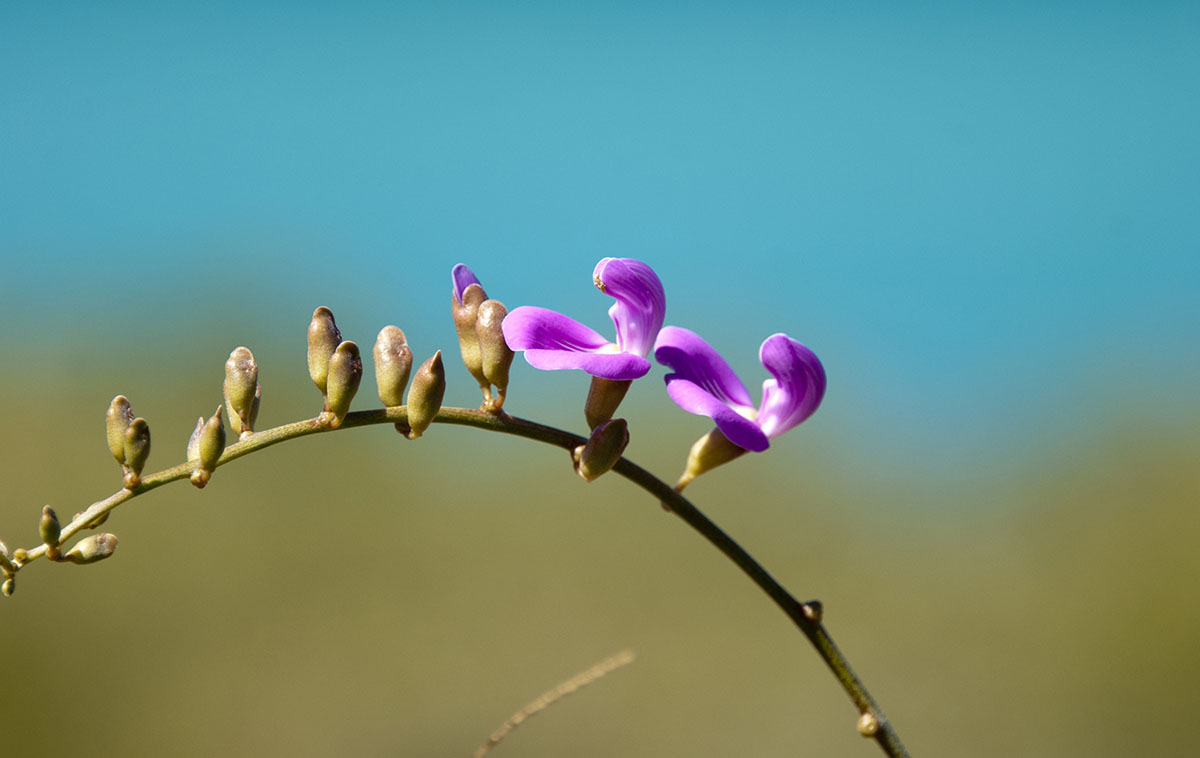
MULLA MULLA
Ptilotus Exaltatus or Mulla Mulla is of great significance in Aboriginal Dreamtime stories, a symbol of spiritual protection.
A lucky shot of a bee leaving after having a feed.
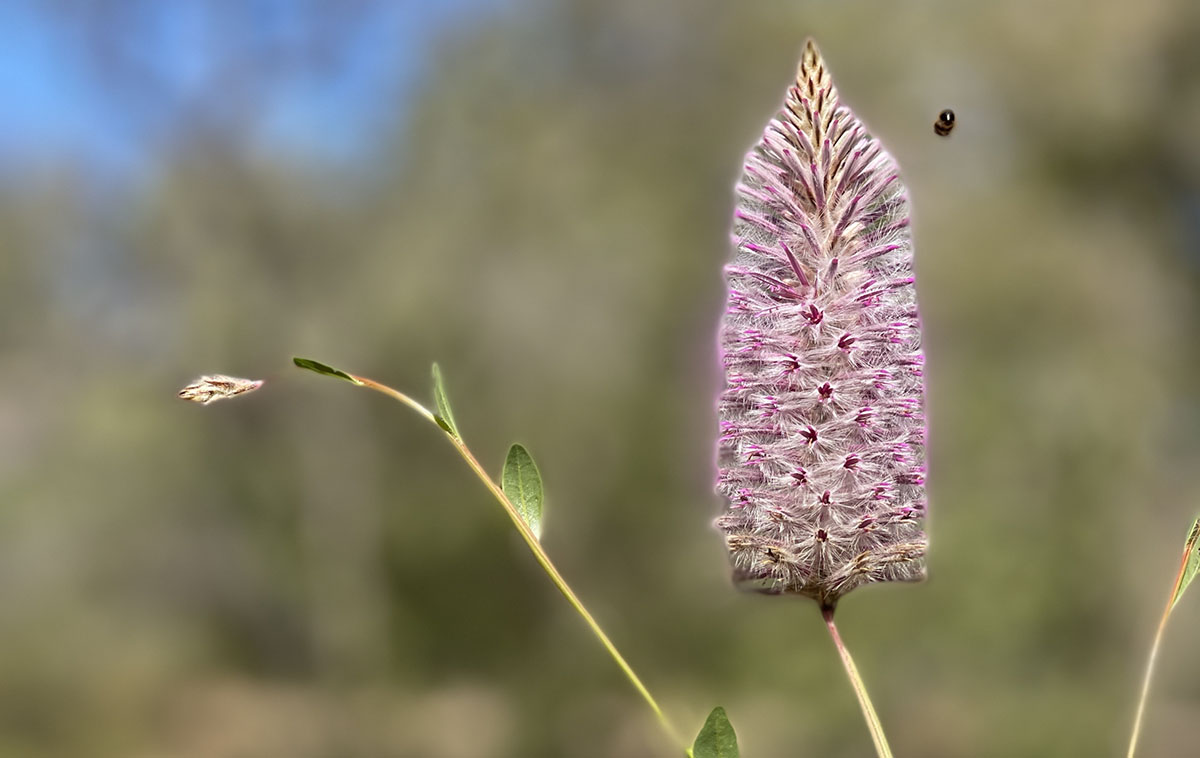
CALYTRIX EXSTIPULATA
Calytrix Exstipulata or Pink Turkey Bush can be used to make an insect repellent, by crushing the flowers and leaves and rubbing them onto your skin. They can also be mixed with hot water to create a liniment for sore muscles.
The wood of the shrub makes excellent firewood and is also used to craft clapsticks, woomeras and prongs for spears.
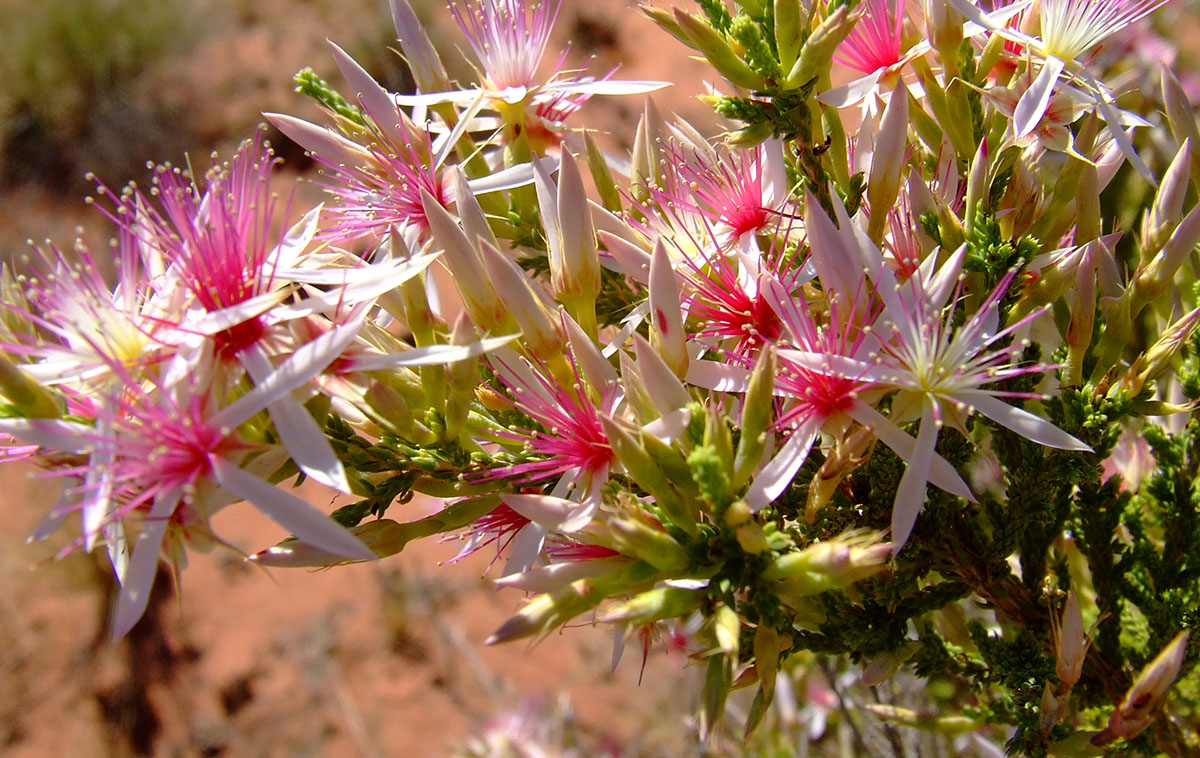
ARIVELA VISCOSA
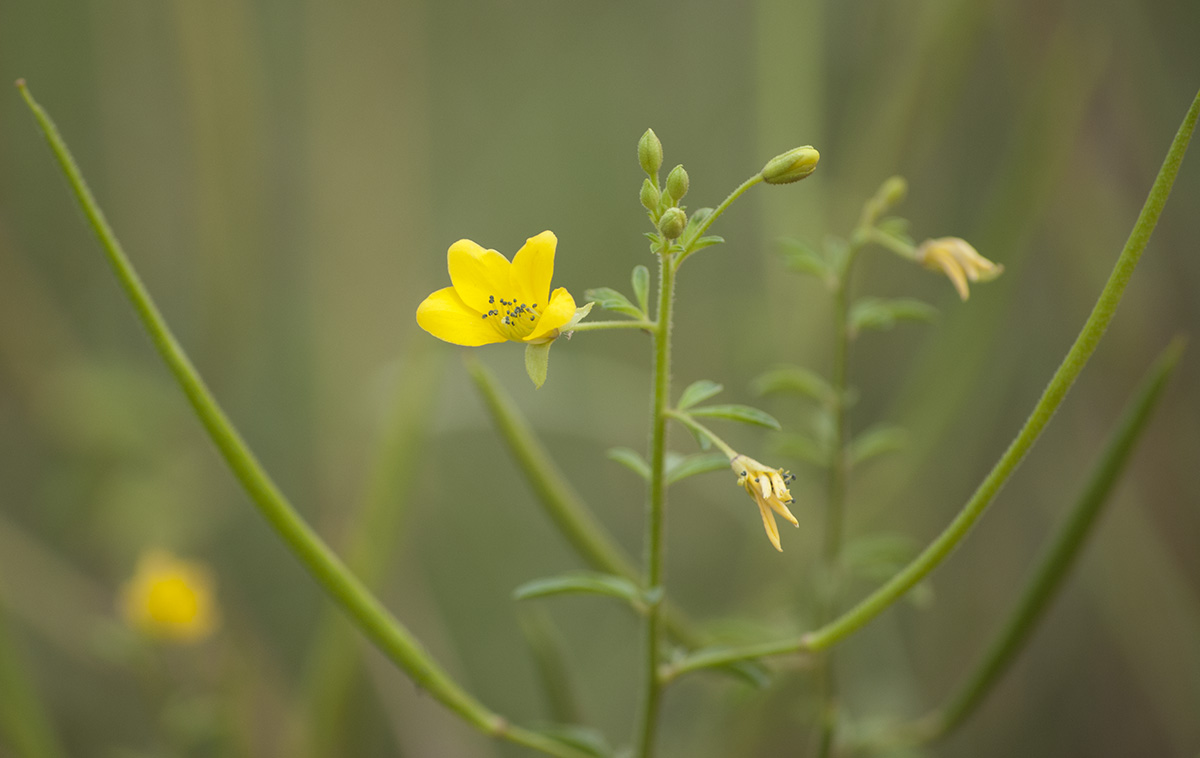
CORCHORUS PUMILIO
The leaves are rich providers of minerals, calcium and iron in addition to vitamins B1, B2, folic acid C and E.
They contain numerous compounds having several biological effects including antidiabetic and antioxidant properties.
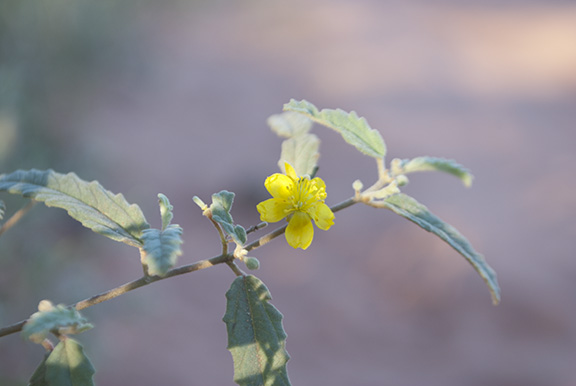
GREVILLEA WICKHAMII
The flowers contain thick, honey-like nectar which can be sucked directly from the flowers or soaked in water to make a sweet cordial-like drink.
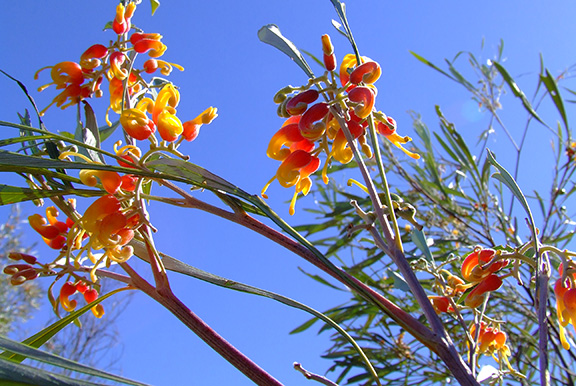
GREVILLEA STRIATA
Aboriginal people used resin from the tree mixed with spinifex to create a cement glue to stick flints to their cutting tools.
They also reportedly used charcoal from the tree to treat wounds and promote healing.
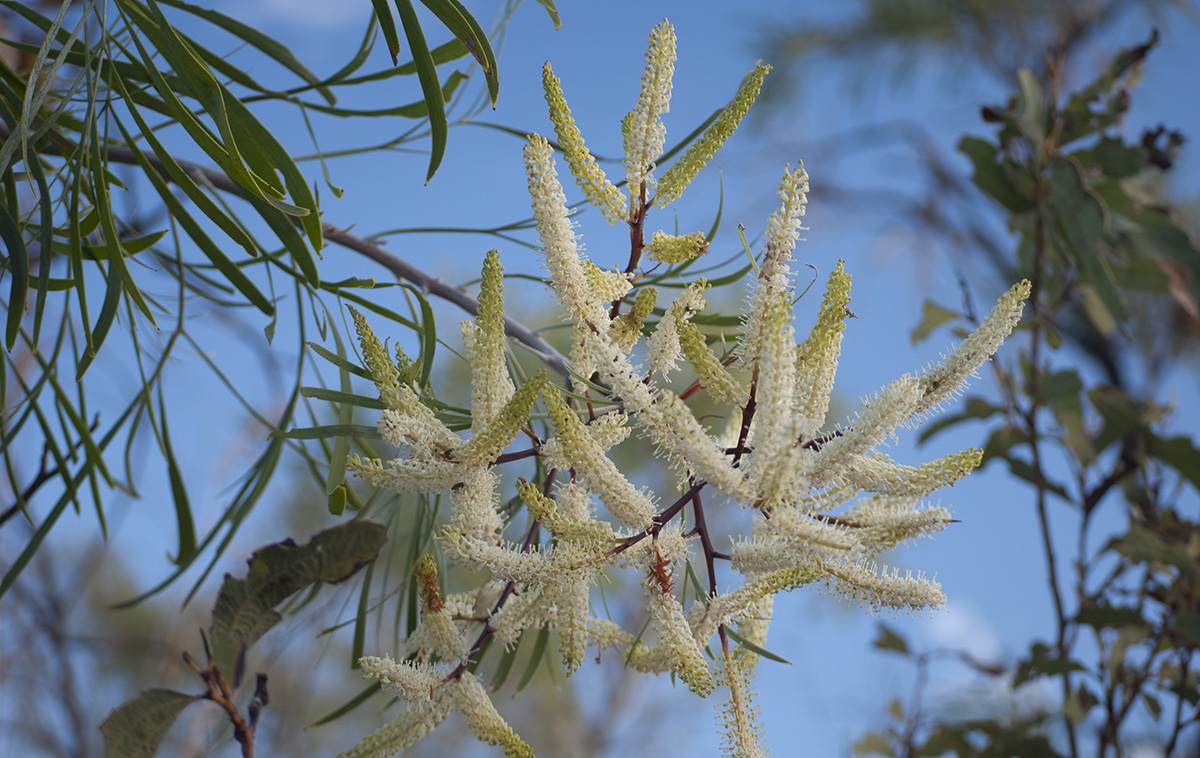
CAPPARIS UMBONATA
Also known as “Wild Orange”, it is used as a diuretic drug to cure kidney disorders.
It is also used for scorpion stings, stomach problems, and also for menstruation induction.
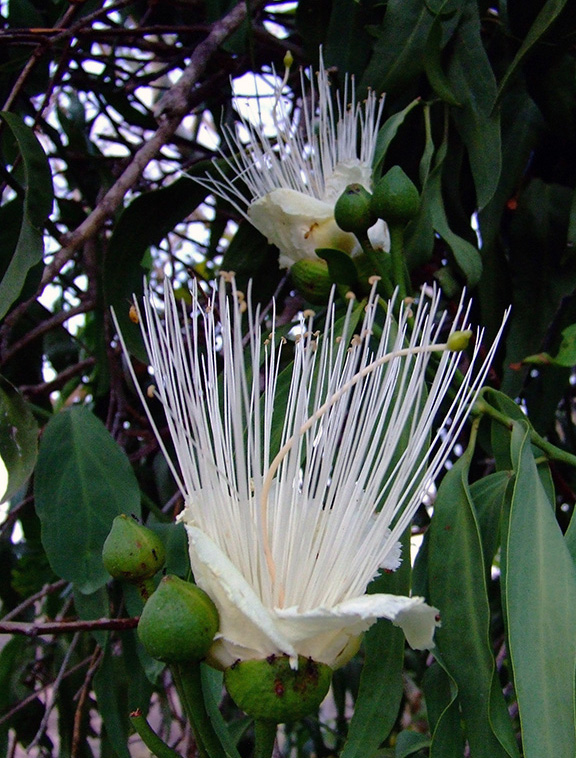
LYSIPHYLLUM CUNNINGHAMII
Commonly known as the Kimberley Bauhinia or the Jigal Tree.
These stunning red flowers are a favourite of mine because the velvety cup, contains a delicious sweet nectar. The nectar attracts honeyeaters and native bees.
The wood burns smokeless and therefore a favourite among indigenous people for cooking.




